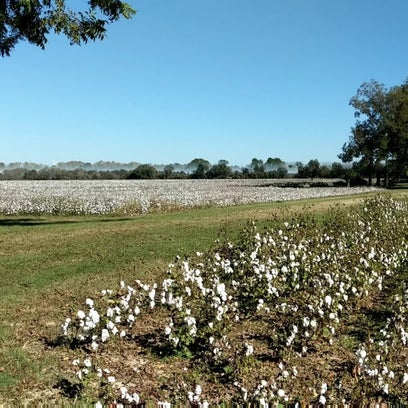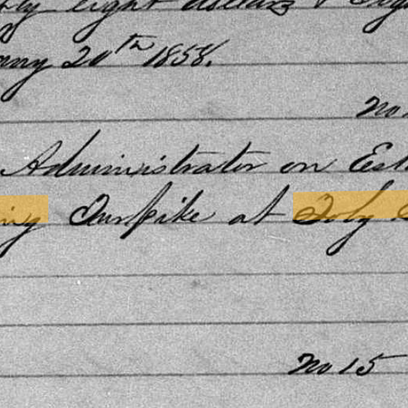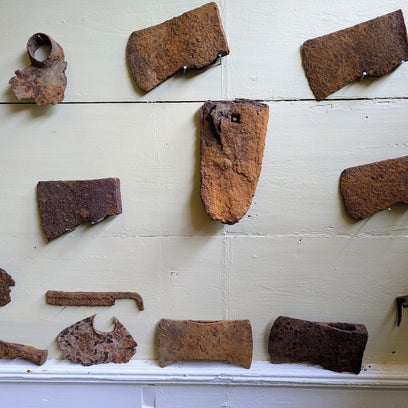Plantation Past

Cotton
Margaret Mitchell's voice
In December of 1828, James A. Bryan, a man carved from the steel of ambition and vision, claimed a swath of Houston County’s virgin earth, where dreams took root as surely as the cotton he would sow. By 1832, he had raised a house, its timbers proud and unyielding, a sentinel over a dominion destined for greatness. At its peak, the plantation sprawled across 1,200 to 1,600 acres, a kingdom where cotton reigned supreme, its white bolls bursting like stars under the Georgia sun, spun into wealth by the toil of over fifty souls whose sweat and sorrow wove the land’s rich saga. That cotton, soft as a whispered vow yet heavy with the cost of human hands, flowed to markets near and far. Through the twentieth century, the old plantation, rechristened Camp Heard and Mulberry Grove, stood as a monument to its past, its fields still whispering of cotton’s glory and the ghosts of those who labored. Even now, in the modern day, those same fields yield cotton, their bolls gleaming under new hands, a testament to the land’s enduring heart, forever tethered to the dreams and burdens of a world time has not fully swept away.

Documents
Toni Morrison's voice
In 1847, when James A. Bryan’s spirit slipped from this world, his plantation stood firm, a shadowed kingdom meant to cradle his kin. For twenty years, its heart pulsed in ledgers, their pages murmuring truths both mundane and merciless: flour sacks and medicine, the bitter coin of enslaved lives bought and bound, and, later, Confederate bonds purchased in a fleeting dream of a different, independent country. Each entry, a thread in the tapestry of those who toiled and endured, carries names and numbers heavy with unspoken stories. Only a few of these pages, still trembling with the weight of time, are laid bare here, their secrets just beginning to breathe.

Artifacts
Toni Morrison's voice
Artifacts, like ghosts rising from the earth, have stirred within the old house and across its timeworn grounds, each a shard of a life long past. A metal detector, wielded by hands chasing history’s echo, has drawn secrets from the soil: a gold-gilded button, glinting from the 1830s, iron balls that hum with the faint tremor of wartime’s shadow, and field tools, their wooden handles long vanished, leaving only rusty iron to whisper of labor’s unyielding grip. Over two centuries, time has been a thief, sparing little beyond the house itself. Yet, tucked within a wall, a hand-stitched doll dress holds a child’s unspoken dreams; post-war medicine bottles, their glass dim with age, murmur of pain and remedy; and a cedar chest lid, carved from the late 1700s, clings to the scent of lives now faded. These fragments, tender yet enduring, sing softly of truths still waiting to be known.